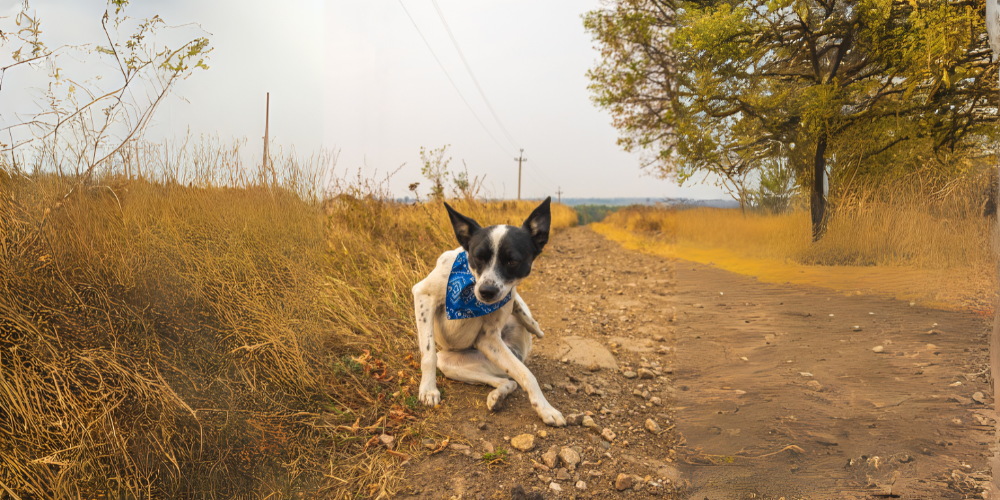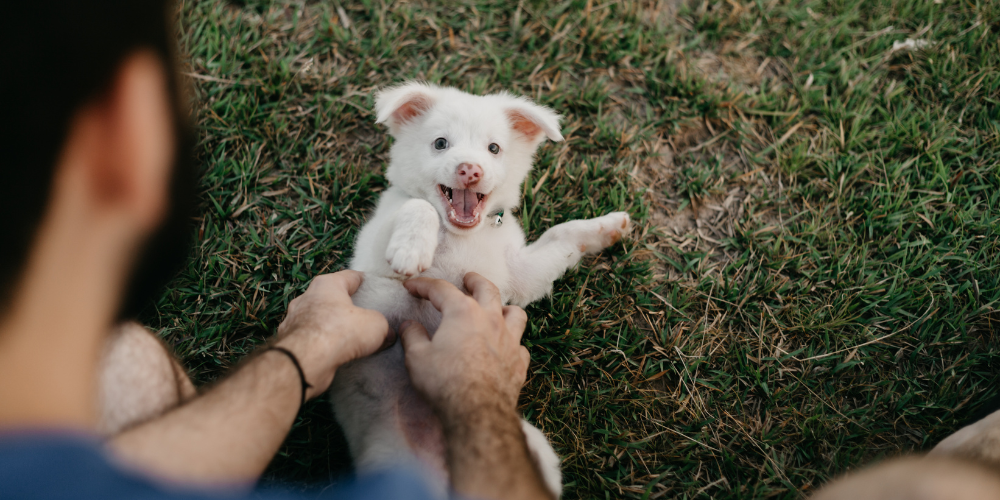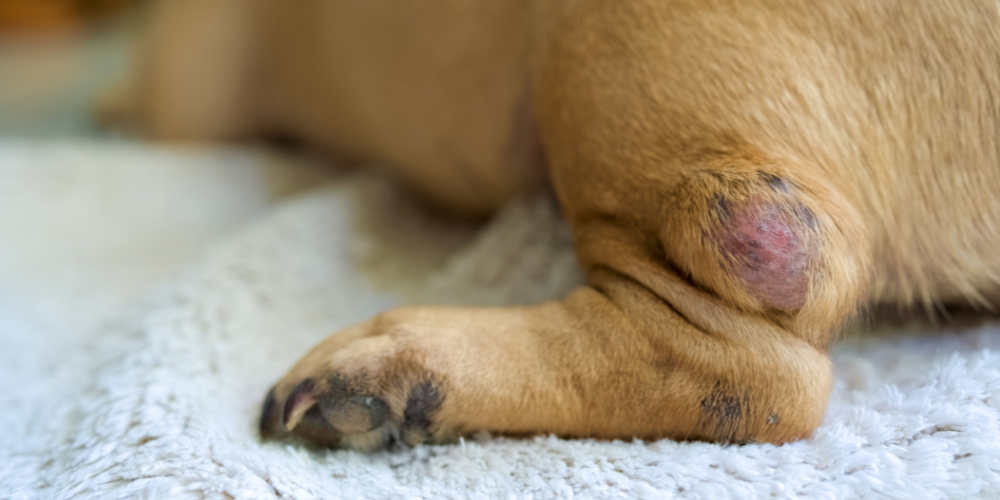
Why Does My Dog Scoot?
Ever caught your dog dragging their bum across the carpet and wondered, “Why does my dog scoot?” It might look funny at first, but scooting is usually a sign that something’s bothering your dog—often something that’s itchy, irritated, or uncomfortable around their back end.
Whether it’s blocked anal glands, worms, or a skin allergy, dogs don’t scoot for no reason. Understanding what’s going on helps you figure out how to help them feel better (and protect your favourite rug while you’re at it).
In this blog, we’ll go over the most common reasons for dog scooting, when it’s time to worry, and what you can do to help. From digestive issues to parasites, here’s what you need to know about scooting and how to keep your dog comfy.
The Most Common Culprit: Anal Glands
The top reason your dog is scooting? Anal gland issues. These are small sacs located on either side of your dog’s bum that naturally empty when they poo. But sometimes they get blocked or inflamed, and that’s when the dragging starts.
Signs your dog might have anal gland trouble:
- Frequent scooting
- Licking or biting near the tail
- A strong fishy smell
- Swelling or redness around the bum
If left untreated, blocked anal glands can lead to infection or even abscesses—ouch. Your vet can help by expressing the glands manually or treating any inflammation.
Some dogs are more prone to this than others, especially small breeds or dogs with soft poos. If it’s a regular issue, your vet may recommend adding more fibre to their diet or using digestive support supplements. You can browse our range of digestive health products to support gut health naturally.
Worms Could Be the Reason
Another big reason dogs scoot? Worms. Tapeworms, in particular, can cause itchiness around the bum. If your dog is scooting and you’re spotting small white segments in their poo (they look like grains of rice), there’s a good chance worms are to blame.
Parasites are incredibly common in Aussie dogs, especially in warmer areas like QLD. A regular worming routine is essential to keep things under control. Not sure where to start? Check out dog wormers for vet-recommended protection.
Allergies and Skin Irritation
Just like people, dogs can suffer from allergies—and those allergies can make their skin irritated and itchy. If your dog is scooting along with scratching, licking their paws, or dealing with frequent ear infections, they might be reacting to something in their food or environment.
Common allergens include:
- Grains or proteins in food
- Pollen or grass
- Flea bites or dust mites
If allergies are behind your dog’s scooting, the best approach is to work with your vet to identify the trigger. In the meantime, feeding your dog a hypoallergenic diet or adding in skin and coat supplements can help calm the irritation. We’ve got a range of skin and allergy support products that can help soothe things from the inside out.
Full or Soft Poos
Soft stools or inconsistent poo can stop your dog’s anal glands from naturally emptying. If their digestion is off, they might start scooting as a result of pressure building up.
What helps:
- Feeding a diet that promotes firm, regular poos
- Adding fibre through food or supplements
- Ensuring they’re drinking enough water
Keep an eye on what their poo looks like (yes, it’s gross—but it’s helpful). If it’s often mushy or changes day to day, try switching to a more digestible diet or adding a supplement.
When Should You Be Worried?
Scooting every now and then might not be a big deal, especially if they’ve just had a beach day or rolled around in something funky. But if it becomes a regular habit, or you notice signs like bleeding, swelling, or strong smells—it’s best to get it checked.
More serious causes of scooting can include:
- Anal gland abscesses
- Rectal polyps or growths
- Skin infections
- Parasites that aren’t covered by standard wormers
Basically, if the scooting is happening often or comes with other symptoms, it’s not something to ignore. Your vet can help figure out what’s going on and recommend the right treatment.
How to Help Your Dog Stop Scooting
Here are a few ways to support your dog and reduce the scooting:
- Stick to a worming routine – Consistency is key
- Groom around the bum – Especially for long-haired breeds
- Use a gentle skin shampoo – If irritation is external
- Support their digestion – With a balanced diet and the right supplements
- Talk to your vet – If it’s recurring or seems painful
You’ll find plenty of vet-trusted digestive support, skin health, and parasite protection options in our collection to help keep your dog healthy from the inside out.
The Bottom Line (Pun Intended)
So, why does your dog scoot? It’s usually their way of saying, “Something’s not right back there.” Whether it’s blocked anal glands, worms, allergies, or tummy troubles, scooting is worth paying attention to.
The good news is that most causes are easily managed with the right care, a good diet, and a few vet-approved products. If you’re looking to give your dog some extra support, head to our dog health to explore vet-trusted solutions that actually work.



